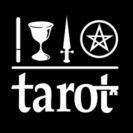Tarot and strategy? Games of chance to decide the next move nevertheless require strategy to win. Remember playing Ludo as a child? Depending on the roll of a dice, which counter your move is critical to winning or losing. Monopoly is another classic example. I found that the orange set of streets with houses and hotels was always a good idea and not owning the expensive Mayfair and Park Lane. Military gaming also requires several dice to decide the nature of the action. Tarot spreads such as the Celtic Cross cut that uncertainty.
While clients may appreciate security and continuity, the nature of these spreads eliminates exploring other, better outcomes and strategies. Life is never as simple and straightforward as the representation in these spreads, and as a result, we fail our clients.
Strategy and Opening of the Key Tarot spread
The Opening of the Key spread in contrast, returns the power of randomization to the reading. How does it do that? By having all 78 cards available in sequence, and by knowing the count we can explore the complexities and possible outcomes available. In many respects, the OOTK spread is more powerful than throwing dice, as it represents parallel outcomes, not the sequential linear possibilities of the dice. The reader can follow different timelines and the way that different people and characters in the drama act out their parts.
Understanding the strategy is key here. The classic game of using dice is backgammon, where the aim is simple – get your pieces to the home and bear them off before your opponent. In tarot terms, this is how positional spreads such as the Celtic Cross spread works. Winning at backgammon is to maximise the power of your own pieces and simultaneously minimise the power of your opponent’s position. When the game starts neither player knows what strategy he will use – it is only after a few moves that a pattern will start to emerge. Within a few throws of the dice, the strategy can change dramatically. As any backgammon player will tell you, the game is a mixture of luck, skill, and foresight, and knowledge of percentages and statistics.
There, I have said it, mathematics is a scary subject, and what is it do with Tarot? This is an area I am going to explore in greater detail. I am not a mathematician, so I hope someone better qualified will be able to take things further.
